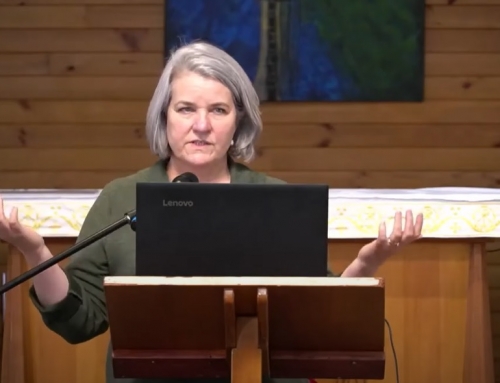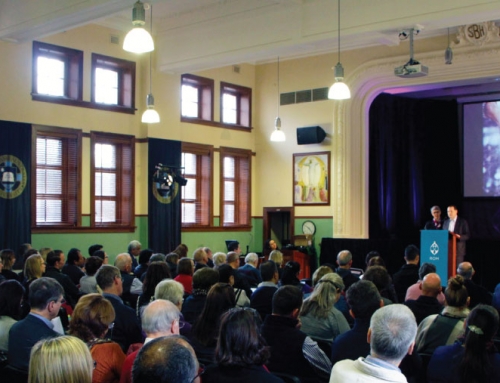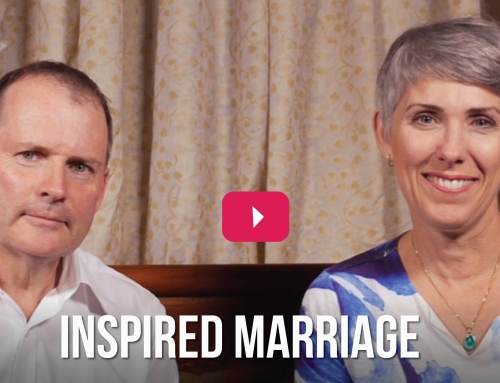Sandra Lynch addresses the Roundtable on Couples on the Brink
Associate Professor – School of Philosophy & Theology and
Director – Centre for Faith, Ethics, and Society, University of Notre Dame
The theme of the Catholic Counsellors Roundtable held in August – “Reconciliation and Couples on the Brink” – introduced participants to Dr Doherty’s research and his wisdom in relation to dealing with relationship breakdown within marriage in light of the partners’ interest in trying to achieve reconciliation.
One of the premises of Dr Doherty’s research and of the roundtable discussion generally was that marriage is a crucial social institution which provides the context for strong, enduring relationships in which the families and future generations may be nurtured and developed. Another premise was that marriage education is valuable since it can assist marriage partners in improving their communication skills, appreciating one another’s roles in the relationship, being realistic about their expectations of one another and developing skills to deal with conflict reasonably.
However, since the discussion dealt with couples on the brink or verge of breakdown, Dr Doherty and the participants drew attention to the negative impact of marital discord and separation on spouses and its effects on children. As Catholic Counsellors and academics, the focus of our discussion was on the role of counselling in attempting to intervene in the process of marital breakdown and in ameliorating the damage it can cause.
We were interested in discussing the kind of assistance to married couples which is informed by the latest scholarship on marital breakdown and reconciliation and Dr. Doherty’s research is an example of current and innovative research. What was most arresting for me as a participant was the role that feelings of ambivalence play in Dr Doherty’s research and how they affect his approach to marriage counselling. Effective counselling firstly demands recognition of any ambivalence which one or other partner might feel about the possibility of saving the marriage; and secondly it requires a decision as to whether those feelings can be overcome so as to give counselling the prospect of some success. So, Dr Doherty outlined a two-step process in which partners who are facing marital breakdown first consider their own motivations, hopes and expectations. It is only when partners are willing to make a genuine commitment to marriage counselling and to the possibility of reconciliation that the second step – counselling – actually begins.
Using a survey sample of 2, 484 divorcing parents surveyed after taking parent classes, Dr Doherty’s research on the interest of divorcing parents in reconciliation indicated that 1 in 4 individual parents expressed some belief that their marriage could be saved; in about 1 in 9 matched couples both partners shared this belief. About 3 in 10 individuals indicated potential interest in reconciliation services, however as one might expect the partner who did not initiate the divorce was more likely to have this interest.
From the perspective of an academic lecturing in ethics to students at the University of Notre Dame Australia, it occurred to me in listening to the discussion that –
there may well be a role in our university’s Core Curriculum program for an exploration of understandings and expectations of marriage.
The Core Curriculum has a formative as well as an academic focus. One of its objectives is to try to create in students habits of philosophical and theological reflection that will last a lifetime and have a positive effect on autonomy and rational decision-making.
Students in the program are encouraged to critically reflect on themselves, on understandings of the human person, on the meaning of life, on the notion of a good life and on what a commitment to faith and living a life of virtue requires. This curriculum would seem to provide an opportunity to assist students not simply to reflect on these ideas, but also to consider and develop strategies which could empower and enable them to deal with the challenges of marriage.
An emphasis on self-reflection, on exploring one’s own and others’ attitudes toward marriage, on appreciating the joy and potency of marriage and its capacity to enhance our lives could be juxtaposed to the challenges of creating genuine and sustainable relationships. A theologically well-informed approach to marriage and a compassionate approach to discord might be expected to have a positive impact on student expectations of marriage. In turn this might help develop emotional intelligence and have at least some impact on precisely those skills and attitudes which marriage educators aim to develop – not least because they are skills which provide a foundation for civilised interaction between all those with whom we engage.





